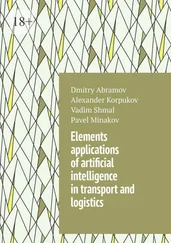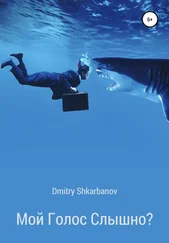Sasha wanted to take her father’s place. So many times she had asked him for the respirator, so that she could go up there, but he was adamant. Probably he knew the filters on the leaky gas mask had been blocked for so long, it was no more use now than any other good luck charm. But he never admitted that to her. He lied about knowing how to clean the filters, he lied about feeling fine after an hour’s ‘stroll’, he lied about simply wanting to be alone, when he was afraid that she would see him vomiting blood.
Sasha was powerless to change anything. They had driven her father and her into this corner and if they hadn’t finished them off, it was more out of contemptuous curiosity than pity. They hadn’t expected the two of them to last more than a week, but her father’s willpower and sheer grit had kept them going for years. Although they were hated and despised, they were given food regularly – but not, of course, for free.
In the breaks between expeditions, in those rare moments when the two of them sat together beside the stunted, smoky little campfire, her father liked to tell her about the way things used to be before. He had realised years ago that there was no point in lying to himself any longer: he had no future. But no one could take away his past. ‘I used to have eyes the same colour as yours,’ he told her. ‘The colour of the sky.’ And Sasha thought she could remember those days too – the days before the gigantic tumour swelled up on his neck, before his eyes faded and turned colourless, when they were still as bright as her own were now.
When her father said ‘the colour of the sky’, of course he meant the azure sky that lived on in his memory, not the crimson sky that eddied and swirled above him when he went up there at night.
He hadn’t seen daylight for more than twenty years. Sasha had never seen it. Except in her dreams – but how could she be sure the way she imagined it was right? Is the world that people blind from birth see in their dreams like ours? And do they see at all, even in their dreams?
When little children squeeze their eyes shut, they think darkness has swallowed up the entire world. They think everyone else around them is as blind as they are at that moment. ‘In the tunnels, a man is as helpless and naïve as those children,’ thought Homer. ‘He can click his flashlight on and off as much as he likes, imagining that he’s the master of light and darkness, but even the very blackest darkness around him can be full of seeing eyes.’
This thought haunted Homer now, after their brush with the scavengers. He had to take his mind off it somehow, distract himself. ‘Strange that Hunter didn’t know what to expect at Nakhimov Prospect,’ he thought. When the brigadier first appeared at Sebastopol two months earlier, none of the sentries could explain how a man with such a massive figure could have slipped past all the guard posts set up in the northern tunnels without being noticed. Thankfully, the perimeter commander hadn’t asked the duty sentries for any explanations.
But if he didn’t come through Nakhimov Prospect, how had Hunter got to Sebastopol? The other routes to the Greater Metro had been cut off ages ago. The only exception was the abandoned Kakhovka line, where no living creature had been seen in the tunnels for many years – and for good reason. Chertanovo? It was ridiculous to suppose that even such a skilled and ruthless warrior could have made his way alone through that cursed station – and it was impossible to get to it without showing up at Sebastopol first.
If the north and the south were excluded, Homer could only assume their mysterious visitor had reached the station from above. Naturally, all the known ways in from the surface and back out to it were thoroughly sealed off and guarded, but still… Could he, for instance, have opened a blocked ventilation shaft? The Sebastopolites thought there was no way the scorched ruins of the concrete-slab high-rises could still throw up someone intelligent enough to disconnect their alarm system. The boundless patchwork chessboard of residential districts was carved apart by fragments of the warheads that fell on the city, and it had been empty for a long, long time. The last human players had abandoned it decades ago, and the horrific, malformed chess figures that roamed across its surface now were playing a new game, by their own rules. Man couldn’t even dream of getting a return match.
Brief excursions in search of anything valuable that hadn’t rotted away in more than twenty years – hasty and humiliating attempts to pillage their own homes – that was all people had the strength for now. Encased in their anti-radiation armour, the stalkers went up there to ransack the skeletons of the nearby low, Khruschev-era buildings for the hundredth time, but they shied away from decisive combat with the new landlords. The most they could do was fire a snarling burst of automatic fire and sit it out in the apartments polluted with rat droppings until the danger had passed – then make a headlong dash for the underground.
The old maps of the capital had lost all resemblance to reality a long time ago. Where once there were wide avenues choked with traffic jams several kilometres long, now there might be gaping precipices or dark, impassable forest thickets. Entire residential areas had been swallowed up by swamps or scorched bald patches. The most reckless stalkers investigated the surface within a radius of up to one kilometre from their home burrows: others were far less ambitious.
The stations that followed Nakhimov Prospect – Nagornaya, Nagatino and Tula – had no exits of their own, and in any case the people living at two of them were too timid to go up onto the surface. It was a mystery to Homer where a living man could have come from in the middle of this wasteland. But he would still have liked to think that Hunter came to their station from the surface. Because there was one other, final possibility for the route the brigadier had followed to reach them. And this possibility came creeping into the godless old man’s mind against his will, while he was trying to control his panting breath and keep up with that dark silhouette rushing ahead so furiously that its feet didn’t even seem to touch the ground.
From below?
‘I’ve got a bad feeling about this,’ Ahmed murmured slowly – just loud enough for Homer to make out his words, but too softly for the brigadier, who had pulled ahead slightly, to hear. ‘We’ve picked the wrong time. Believe me, I’ve been in plenty of convoys here – this is a bad day at Nagornaya.’
It was a long time since the bands of petty robbers, who rested from their plunder at dark way stations as far away as possible from the Circle, had dared to come anywhere near the Sebastopol convoys. When they heard the regular tramping of metal-tipped boots announce the heavy infantry’s approach, the only thought in their minds was how to get out of the way as quickly as possible.
No, they weren’t the reason why the convoys were always so well-guarded, and it wasn’t because of the four-handed scavengers at Nakhimov Prospect either. Iron discipline and audacious courage, with the ability to close ranks into a wall of steel in seconds and exterminate any tangible threat with a withering hail of fire would have made the Sebastopol convoys masters of the tunnels from their own guard posts all the way to Serpukhov… If not for Nagornaya.
Nakhimov Prospect and all its horrors were behind them now, but neither Homer nor Ahmed felt even a moment’s relief. Nagornaya Station, so plain and unassuming, had been the end of the line for many travellers who failed to take it seriously enough. The poor souls at the next station, Nagatino, huddled as far away as possible from the greedy jaws of the tunnel that led south, to Nagornaya. As if that could protect them… As if what crept out of the southern tunnel to garner its harvest wouldn’t bother to prowl a little further in search of prey that suited its taste.
Читать дальше











